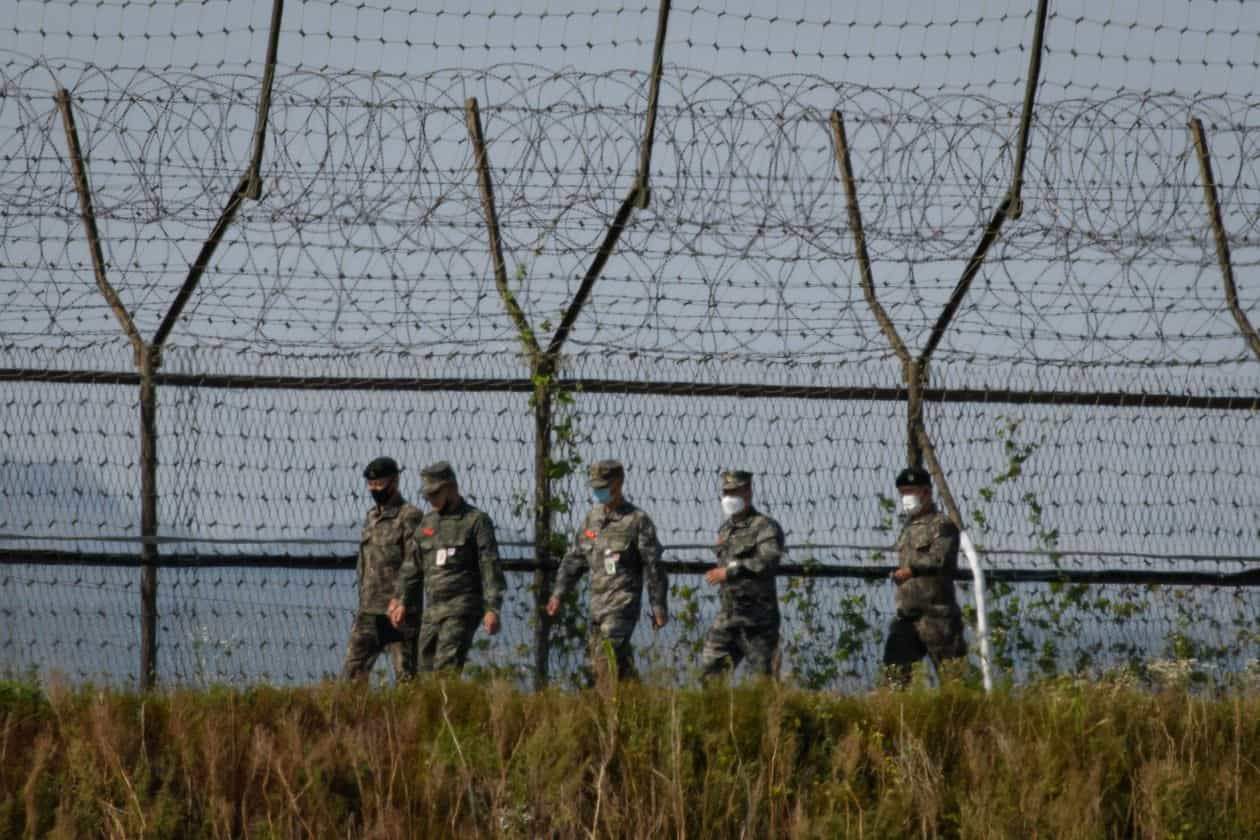North Korean Defector’s DMZ Crossing Raises Questions About Border Security

A North Korean defector swam south across the border, slipped through a drainage conduit, popped up on military cameras eight times and strolled down a barricaded road. Alarms blared twice.
This all transpired last week before the man was detected on camera by South Korea’s military, triggering an hourslong manhunt.
The six-hour saga after the man crossed one of the world’s most fortified borders—the Korean demilitarized zone—was detailed in a briefing Tuesday for local media by Seoul’s military.
South Korea’s Joint Chiefs of Staff, which has conducted a probe into the border breach, declined to comment to The Wall Street Journal.
The incident ignited criticism by South Korean lawmakers and military experts over how well the country’s soldiers are monitoring a border that is about 150 miles long and more than 2 miles wide.
At a hearing Tuesday with South Korea’s defense minister, opposition lawmaker Shin Won-sik, a retired three-star army general, questioned why the military had been unaware of a drainage area accessed by the North Korean man. “It’s not like there was a minefield,” Rep. Shin said. “This shows we didn’t really check the terrain there.”
The penetrability of the DMZ has been questioned in recent months. In November, a North Korean man made it over a 10-foot-high border fence and evaded detection for half a day. A military investigation said loose fence screws had caused motion-detecting sensors to fail.
In July, a runaway North Korean who apparently had been infected with Covid-19 went unidentified as he fled back into the North, despite being spotted seven times by surveillance cameras and thermal gear.
Maintaining round-the-clock surveillance is a difficult task and should be something the South Korean government considers outsourcing to private companies, said Kim Young-jun, a professor at the Korea National Defense University in Seoul.
“We need a paradigm shift,” Prof. Kim said. “The military’s job is to defend against actual war, rather than watching if one or two people come to our side.”
South Korea’s contingent of active military personnel is also declining, resulting from the country’s falling birthrate and a planned reduction in mandatory service to 18 months for all enlistees. That will winnow the ranks from about 600,000 personnel in 2019 to about 530,000 by the end of this year, according to South Korean figures.
The lower numbers and shorter stints add strain to border surveillance, said Lee Sang-ho, a professor at South Korea’s Daejeon University, who has advised the country’s military. “This is a huge problem,” Prof. Lee said. “It’s not enough time to train these people to be able to perform the duties and secure training.”
More than 33,000 North Koreans have relocated to South Korea, nearly all taking a circuitous route through a third country. Crossing the DMZ is much rarer.
Last week, the North Korean man, wearing flippers, a padded jacket and a diving suit, waded through choppy waters along the Korean Peninsula’s east coast, according to South Korea’s semiofficial Yonhap News Agency, citing the country’s Joint Chiefs of Staff. After dumping his gear around 1 a.m. on Feb. 16, he shimmied under barbed wire and traversed through the drainage conduit.
Over the next three hours, the man was caught on camera eight times, with alarms ringing twice, before soldiers spotted him around 4:15 a.m., according to Yonhap, citing the Joint Chiefs of Staff.
South Korea’s military detained the man a little over three hours later, inside a restricted area near the eastern border town of Goseong. He was found lying on the ground nearby, wearing a jacket and covering his lower body with leaves.
The man was a North Korean civilian who worked in the fishing industry, Yonhap reported, with the Joint Chiefs of Staff declining to provide other details. Once captured, he expressed a desire to defect.
Photo: South Korean soldiers walking along the demilitarized zone separating North and South Korea in October. - ED JONES/AGENCE FRANCE-PRESSE/GETTY IMAGES
Link: North Korean Defector’s DMZ Crossing Raises Questions About Border Security - WSJ











